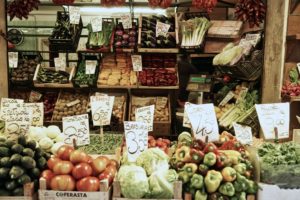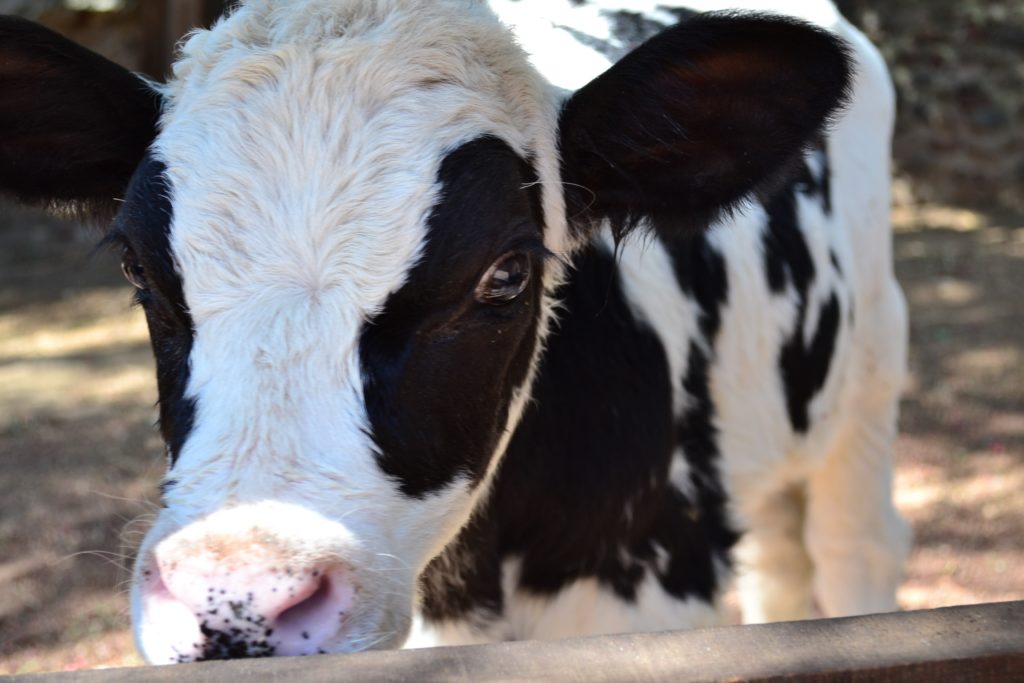Politics is about how power shapes governance, and how we as individuals and groups interact with these political spheres of influence.
Food systems and food representation is, therefore, inherently political.
A number of issues around food policy in the United States affects the basic structures of society, and yes, you should care.

Here are 5 reasons why food is political:
1. Good Food & White Food Are Often Synonymous
As Dave Chang beautifully summarizes as a guest on the Great Debates podcast debating whether or not it’s worth eating at a “White Person Restaurant” in Los Angeles, our metrics on rating restaurants are racially coded and dependent on class.
Pop food chefs frequently attain incredible fame and success doing the what equally talented immigrant or minority chefs do through years laboring in obscurity. To be considered “haute”, the food cultures of communities of color are forced to tether to European standards and techniques.
The same is true of what is considered healthy. If you Google “healthy food” or “healthy diet”, you’ll notice there’s very little variety in what healthy eating looks like – avocado toast, juice cleanses, and unattainably skinny (often White) people. When healthy eating is presented through a Eurocentric lens, the implication is that other cultures’ foods are not as healthy, which preserves the idea that Eurocentric culture is superior, but also reinforces the good versus bad binary that reflects the worst parts of diet culture. To expose only the Westernized perspective of cultural foods is to exclude the sustainable plant-based eating patterns and ancient wisdom of these communities, that have informed so much of our Eurocentric lens of healthy eating to begin with. Separating “good food” from “white food” preserves global food history and its cultural relevance.
/cdn.vox-cdn.com/uploads/chorus_image/image/58797849/Ugly_Delicious_S01E08_15m42s22597f.0.jpg)
2. Food Has a Human Cost We Rarely See

Animal rights, matter. The veganism of the Western world certainly drives that point home.
However, the absence of inhumane treatment of farmworkers and the extraction of rural communities in conversations about animal cruelty is striking and rampant.
It is crucial that discussion of plant-based diets being kinder to the environment and animals include and center discussions about farmworkers and the conditions that people face in producing the food we eat.
food is political
Their liberation matters as a part of what we eat and how.
3. Cultural Appropriation of Food is Built on Erasure of Histories
Writer/illustrator Ruth Tam writes, “immigrant food is often treated like discount tourism – a cheap means for foodies to feel worldly without leaving the comfort of their neighborhood […], a stylish way for American chefs to use other cultures’ cuisines to reap profit. The dishes of America’s recent immigrants have become check marks on a cultural scavenger hunt for society’s elite.”
Trendy dishes hyped as “authentic” were once scorned and ridiculed when cooked by those who brought their cultures to the West. For communities of color, appropriated foods are a symbol of colonial power and oppression, not the myth of America’s melting pot.
4. Food Access is a Pressing and Dire Racial Justice Issue
Hunger is racially stratified; food access cannot be divorced from other injustices.
According to the USDA Economic Research Service, 12% of households are food insecure. Double that for Black, Hispanic, & Native American households.
Studies show a neighborhood’s racial composition is a prime indicator of a high number fast food restaurants & ads, and a significantly low number of supermarkets. This imbalance is predominantly faced in low-income Black neighborhoods, an issue researchers coin “double jeopardy.”
Why? Structural and interpersonal racism and classism that leave communities fighting for adequate housing, food, healthcare, education, and employment.
5. Government & Corporations Influence Our Food Choices

Because of their enormous financial and political resources, corporations and the government agencies that regulate them have a significant influence over our food choices and the information we receive about them.
Huge ad budgets that infiltrate marketing in schools, media and civic life make the Big Food and Big Ag industries an ingrained fixture in our popular food culture, eating behaviors, and consumer choices – usually in an unhealthy direction.
Government agencies that regulate the food industry are often more concerned with safeguarding corporate interests than protecting public health. Ironically, they are a major information outlet on health and nutrition.
What can you do about it?
Strengthen and Support Grassroots Efforts
- Acta Non Verba helps economically disadvantaged youth grow their own food and sell it at farmers’ markets.
- Agriculture Justice Project gives farming communities a voice in public comments on national policies.
- Harlem Grown introduces food justice practices to NYC’s youth through workshops, summer camps, and mentorship programs.
Donate food and your time to local pantries food is political
- Hold a donation drive, and include a cash option
- Participate in a food packaging event
Advocate for raising the minimum wage
- Addressing food injustice means addressing root causes of poverty. While a fair wage is not the only factor in eliminating poverty, it is a very necessary step.
- Vote, and keep leaders accountable
What activates you to get involved in food politics, and what do you do to help address it? Let us know!
food is political food is political


